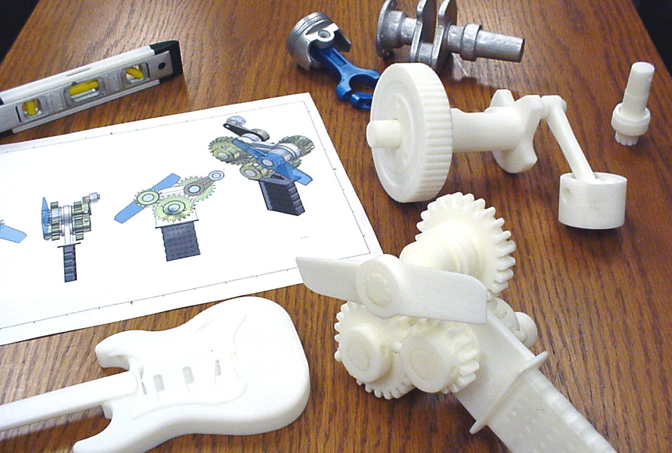PostNet Neighborhood Business Center recently announced that its franchise in Minneapolis will become the first to offer 3D printing services as part of a pilot program to evaluate the 3D technology's applications for small businesses and entrepreneurs.
April 10, 2014
PostNet Neighborhood Business Center recently announced that its franchise in Minneapolis will become the first to offer 3D printing services as part of a pilot program to evaluate the 3D technology's applications for small businesses and entrepreneurs.
The company has purchased a Stratasys uPprint SE Plus to offer customers interested in 3D printing the chance to design new products, develop working prototypes, build architectural models, create customized products and more. The uPrint SE Plus is a Fused Deposition Modeling (FDM) machine that builds parts from real ABSplus thermoplastic material in nine colors.
 While this sounds like just another nifty value-added service for the PostNet Neighborhood Business Center, which offer printing, copying and shipping, it could become problematic. First, who will program the software required to make the product or prototype? The PostNet franchise owner of the Minneapolis store, Dave Thorsen who spearheaded this initiative, is an architect so perhaps he has programming experience and can provide customers with this service. However, it may be that if demand becomes big enough, he may have to hire a full-time software programmer/engineer.
While this sounds like just another nifty value-added service for the PostNet Neighborhood Business Center, which offer printing, copying and shipping, it could become problematic. First, who will program the software required to make the product or prototype? The PostNet franchise owner of the Minneapolis store, Dave Thorsen who spearheaded this initiative, is an architect so perhaps he has programming experience and can provide customers with this service. However, it may be that if demand becomes big enough, he may have to hire a full-time software programmer/engineer.
Then there is the sticky issue about what people will be printing. Is it their design or are they copying someone else's trademarked or patented product? I see warning labels on copy machines at office supply/services stores warning about copyright infringement. Will Thorsen have to somehow ensure that people aren't printing products that already belong to someone else? Walgreen's won't even copy a photograph of a person unless it's 100 years old! Most photo copying service stores at least ask me if it's my copyrighted photograph before they make my copies.
Additionally, will Thorsen have to oversee the type of products being printed in his store on his machine? What if, for example, someone wants to print a hand gun? Will he have a problem with that? Or a knife? Will there be rules about what people can print? Can Thorsen really control what's coming out of the printer? Will people have to sign a statement that the product they are about to make is their own and not someone else's, and will absolve the store ownership from all responsibility in case of copyright infringement?
It might appear to be an interesting technology and Thorsen's idea to make it part of the business services PostNet offers. But 3D printing of products isn't like making a printed copy of your term paper or a business agreement or a photograph. Let's face it — 3D printing is not just a "copier."
It appears that this time around, the 3D printing service bureaus have staying power and the new term "additive manufacturing" has legitimized the technology as something more than just "rapid prototyping." But are business services stores and other retail outlets really the right place, even if it is the right time?
About the Author(s)
You May Also Like




